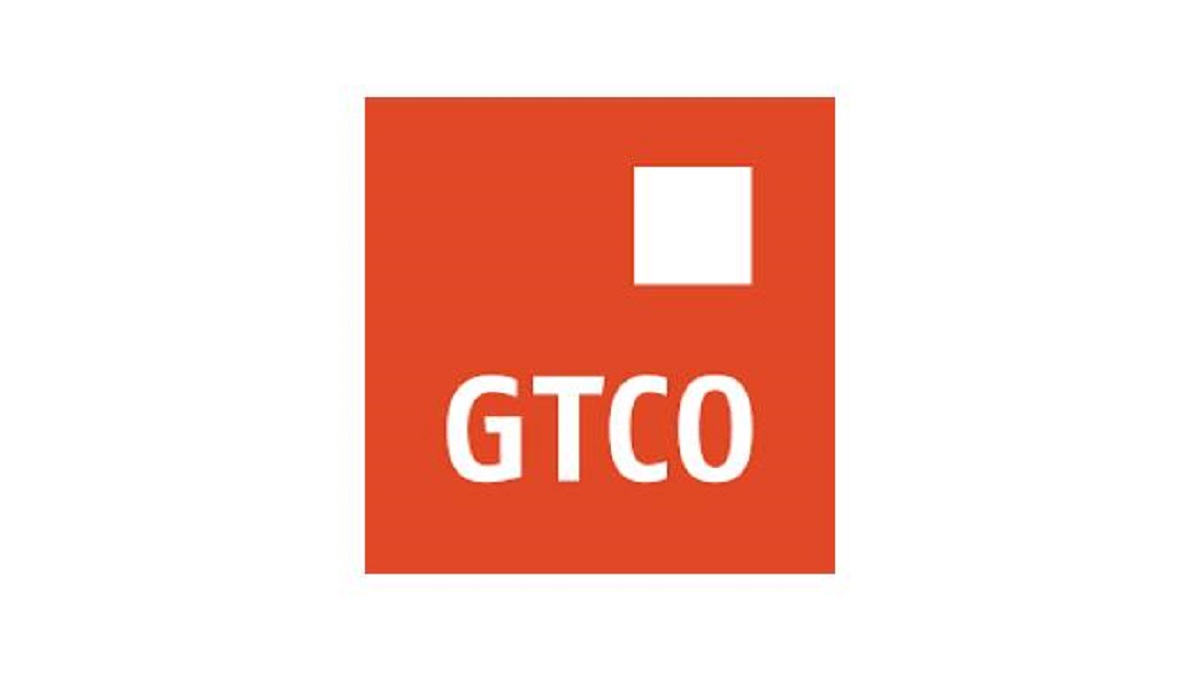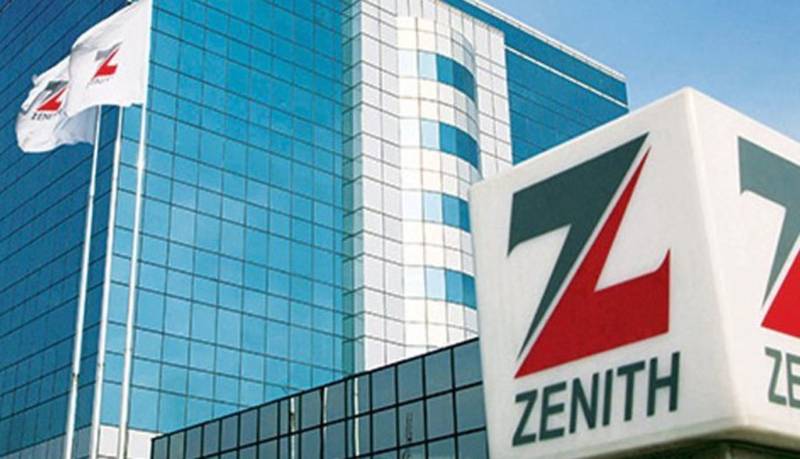Business
GTCO Introduces Squad to Ease Payment for African Merchants

When it comes to internet penetration and adoption of mobile payments, most African countries are still very much below the global average. Even where the internet penetration is improving, the mobile payments adoption rate is still low, meaning an overall lag. For instance, in Kenya where mobile payment adoption is most on the continent, only about 23.1% of the internet users actually use mobile payment methods.
So, even though the internet infrastructure allows business owners access a wide market, mostly outside their location, sending and receiving payments with ease still remains a struggle for many. But this is only for businesses that are not taking advantage of Squad – the newly launched Integrated Payment Solution that is set to revolutionise digital payments in Africa.
Squad is a payment service that is set to drive the future of mobile payments in the African Continent. If you have imagined an Africa where every payment is digital, it is an Africa where every business uses Squad. The features show that this might be the most online and offline payments option for merchants.
Squad will be empowering businesses by taking care of their payment problems and helping to make every payment digital whether it is made online or offline. It features offline as well as online payment acquisition channels like the Payment Gateway and the Soft POS. If you are worried about getting or handling a POS, the software Point of Sale (Soft POS) allows merchants and vendors to accept payments directly on their phone or device without the need for any additional software. And isn’t this what every merchant needs?
Also, there are several value-added services like the bulk payment collection, automated reconciliation of offline and online payments, fraud prevention tools and instant settlement among others.
There is a need to get on board the use of Squad considering the need to adopt more cashless based transactions in Africa, growing cases of transmittable diseases, tightened cash liquidity, insecurity amongst others.
The best way to sum it is that Squad is the one-stop payment solution for every business in Africa. Squad is that single product that brings technology and user experience and satisfaction for a meet-and-greet. The features are designed for and targeted at micro and small business owners like Kiosk owners and petty traders, medium business owners like digital sellers, online vendors; Tech talents; and even big enterprises.
It is interesting to note that the adoption of cashless based transaction help businesses especially small and medium scale enterprises to increase their top line (revenue). According to a survey by Khatabook, about 45% of SMEs report a boost in sales after adopting mobile or digital payment services.
Therefore, with Squad bringing in a solution that features ease, convenience, and security from fraud, businesses can jump on this train and improve their chances of success.
It makes so much sense that such a product is coming from Guaranty Trust Holding Company Plc (GTCO). Indeed, if any brand has the relevant pieces to define new frontiers in payment and dominate the payments landscape in Africa, it is GTCO.
The GTCO Squad behind Squad
Guaranty Trust Holding Company Plc is a fully fledged financial services group, on a mission to make financial services accessible to all Africans. GTCO Plc metamorphosed from Guaranty Trust Bank Ltd which has really been around since the 1990s, and now present in several African countries including Uganda, Ghana, Gambia, Sierra Leone, Rwanda and Kenya.
In June 2011, Segun Agbaje took over as Chief Executive of the Bank and since then led the team to blaze a trail in innovation and efficiency. Within the space of a decade, Agbaje raised the Bank’s profit by N1.3 trillion and expanded the balance sheet by 12.07% on average annual growth. The assessment indices show positive growth for the financial institution not just in Nigeria, but in every African country where GTCO is present.
Shareholder’s wealth has also seen a major boost during the period with total equity rising from N230.393 billion in 2011 to N814.395 billion in 2021, an average 13.46% growth per annum. Earnings per share also grew 15.45% on the cumulative average growth rate, from N1.69 per share outstanding in 2011 to N7.11 in 2020. Total assets grew by at least by 12.07% annually in the decade, from N1.598 billion in 2011 to N4.944 trillion in 2020.
What we can all attest to is that the numbers don’t lie, and GTCO has a track record filled with numbers that demonstrate efficiency and profitability, even in the face of the harsh and challenging economy which crumbled several other businesses. Only a formidable leadership could have sustained such records.
GTCO has always had a digital-first, customer-centric strategy that builds digital products and to help individuals and businesses thrive. Expectedly, the bank was recipient of several awards at the Electronic Payment Incentive Scheme (EPIS) Efficiency Awards organized by the Central Bank of Nigeria (CBN) in conjunction with the Nigeria Inter Bank Settlement System (NIBSS). The bank clinched 8 out of the 13 awards available for the banking industry at the 2019 EPIS Efficiency Awards including Best Customer Experience Award; Cashless Driver, Point of Sale (POS) Transactions; Real-Time Payments Transaction Efficiency; Cashless Driver, USSD Channel Champion among others.
The Holding company is now home to several trusted brands that are driving innovation and creating viral product adoption, ensuring great experiences and growing valuable customer engagement. Squad is only the latest addition to this list.
Culled from Nairametrics
Business
UBA Announces Strategic Expansion into Key Markets Across Africa

UBA Group senior executives recently concluded the Group’s Half Year Business Review. Held at global headquarters in Lagos Nigeria, Group Managing Director/CEO, Oliver Alawuba, brought together executives responsible for UBA’s twenty-four countries of operation.
It was an opportunity to restate the Group’s pan-African strategy, and commitment to further expanding the Group’s coverage across high potential markets across Africa, while also deepening its operations in its existing twenty African presence markets. With over 51.7% of Group revenues from ex Nigerian operations, UBA’s journey to being Africa’s most diversified financial services group was clearly in evidence,
The international strategic intent reinforces with the Group’s intention to deliver innovative financial solutions to its fast-growing global customer base. The strategy demonstrates UBA’s unique position as Africa’s global bank and ability to leverage growth opportunities in emerging and leading African markets.
The Group commenced its Pan African journey, with its entry into Ghana in 2004, followed by rapid expansion into 18 additional African markets. Today, as a resilient and future-focused institution, UBA continues to push boundaries by connecting Africa to the world and the world to Africa.
Mr Alawuba highlighted the Group’s expansion plans, disclosing that the Group is excited about the vast opportunities that the new markets present, a testament to UBA Group’s confidence in the African economy, providing world-class banking services that meet the continent’s evolving needs.
“UBA’s vision is clear – we are building a truly global institution anchored in Africa, but serving customers across continents. Further strategic expansion positions us to unlock new opportunities, support intra-Africa trade, and deliver world-class banking experiences wherever our clients choose to do business,” Alawuba said.
“In Europe, UBA has operations in the United Kingdom and upgrading its license in France, expanding its capacity to serve cross-border trade, investment flows, and the African diaspora, complementing our over 40-year presence in NY. These moves signal a clear message of UBA’s intent to reshape the competitive landscape”, Alawuba further said.
As part of the Group’s plan to expand its global presence, UBA, in January, announced plans to open operations in Saudi Arabia.
Operating in twenty African countries and the United Kingdom, the United States of America, France and the United Arab Emirates, UBA provides retail, commercial and institutional banking services, leading financial inclusion and implementing cutting edge technology. United Bank for Africa is one of the largest employers in the financial sector on the African continent, with 25,000 employees’ group wide and serving over 45 million customers globally.
Business
Sustainable Education Ecosystem: Ecobank Unveils Customer Value Proposition

Ecobank Nigeria, an affiliate of the leading pan-African banking group, Ecobank Group, has announced a comprehensive suite of innovative financial solutions designed to support all key stakeholders within the education ecosystem. These offerings are aimed at driving financial inclusion, operational efficiency, and sustainable growth across the sector.
For school owners and educational leaders, Ecobank offers cash-backed loans to support both operational and capital expenditures. These are complemented by treasury management tools that enhance financial oversight, along with digital collection platforms that ensure seamless and efficient school fee processing. Teachers and non-teaching staff also stand to benefit significantly. Ecobank provides salary access tools that enable timely and flexible income management, career development programs to support continuous professional growth, and financial wellness plans designed to promote long-term financial stability.
Suppliers and partners within the education value chain benefit from tailored financial solutions such as invoice factoring for improved cash flow, inventory financing to maintain operational continuity, and marketplace visibility to expand their reach and business opportunities within the sector.
Speaking at the unveiling event in Lagos, Kola Adeleke, Executive Director, Commercial and Consumer Banking at Ecobank Nigeria, reaffirmed the bank’s commitment to empowering the education sector with practical financial solutions that address real-world challenges, enabling all participants, from institutions and educators to families and partners, to thrive.
“Our integrated financial and non-financial propositions form part of a broader strategy to strengthen our leadership in the education financing space, while contributing meaningfully to national and continental goals around access, equity, and excellence in learning. We have designed these solutions to meet the diverse needs of school proprietors, teaching and non-teaching staff, students, and parents. Ecobank is committed to empowering the education sector through seamless collections, access to credit, and a suite of sustainability-focused offerings. Education is a pillar of national development, and we recognize the sector as an integrated system of needs and opportunities. Our goal is to support this system not just with financing but also with digital tools, career development programs, and sustainability initiatives,” he said.
Also speaking, Adebukola Ademiluyi, Head of Education, Faith, and Social Services at Ecobank Nigeria, highlighted the bank’s commitment to affordable and inclusive financing options. She noted that by integrating smart financing with sustainability, digital infrastructure, and inclusive participation, Ecobank is pioneering a full-service banking model tailored to the realities of Africa’s education sector.
“More than just funding, we are enabling seamless school management systems through API partnerships that digitize operations such as student registration, staff payroll, inventory management, and parental communication. We also place strong emphasis on supporting parents and guardians, providing financial planning tools, access to student loans, merit-based scholarships, and child progress monitoring systems. These innovations are designed to ease financial burdens and deepen parental involvement in their children’s academic journeys,” she said.
Business
Zenith Bank Retains Top Position in Nigeria by Tier-1 Capital

Zenith Bank Plc has retained its position as the Number One Bank in Nigeria by Tier-1 Capital for the sixteenth consecutive year, in the 2025 Top 1000 World Banks’ Rankings, published by The Banker, Financial Times Group, United Kingdom.
This ranking places Zenith Bank Plc as the 581st Bank globally, with a Tier-1 Capital of $2 billion.
The global rankings, published in the July 2025 edition of The Banker, was based on the 2024 year-end Tier-1 capital of banks. This is the primary basis for most international organizations’ assessments of banks.
Commenting on this achievement, the Group Managing Director/CEO of Zenith Bank Plc, Dame (Dr.) Adaora Umeoji, OON, said, “We are thrilled to have retained our position yet again as the Number One Bank in Nigeria by Tier-1 capital for the 16th consecutive year. This achievement is a reflection of the bank’s robust financial performance, prudent risk management and steadfast dedication to delivering exceptional value to our customers and stakeholders”.
She thanked the Founder and Chairman, Jim Ovia, CFR, for his visionary and transformative leadership which has played a pivotal role in cultivating a resilient and thriving institution. She also expressed her deepest appreciation to the bank’s esteemed customers for their continued loyalty to the Zenith brand, the Board for the sound corporate governance, and the staff for their relentless & tireless efforts in ensuring the bank’s success.
Tier-1 Capital describes capital adequacy, the core measure of a bank’s financial strength from a regulator’s perspective. According to the ranking, Tier-1 Capital, as defined by the Bank for International Settlements (BIS) guidelines, includes loss-absorbing capital, i.e., common stock, disclosed reserves, retained earnings, and minority interests in the equity of subsidiaries that are less than wholly owned. A strong Tier-1 capital ratio boosts investor and depositor confidence, indicating the Bank is well-capitalised and financially stable.
According to the audited financial results for the 2024 financial year presented to the Nigerian Exchange (NGX), the Bank recorded a double-digit growth of 86% in gross earnings, increasing from N2.13 trillion in 2023 to N3.97 trillion in 2024. This growth was driven by a 138% increase in interest income, supported by investment in high-yield government securities, and growth in the Bank’s loan book.
Zenith Bank’s profit before tax (PBT) rose by 67%, reaching N1.3 trillion in 2024 from N796 billion in 2023. This performance saw the bank record an unprecedented total dividend payout of N195.67 billion at N5.00 per ordinary share in the 2024 financial year.






